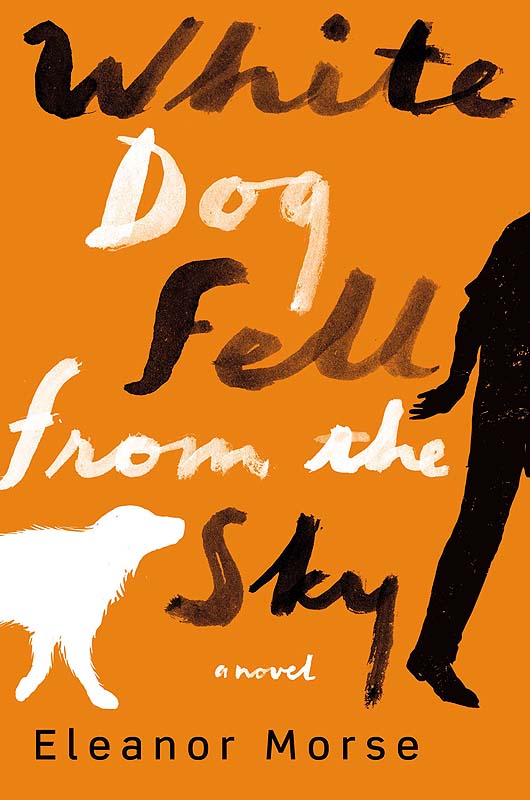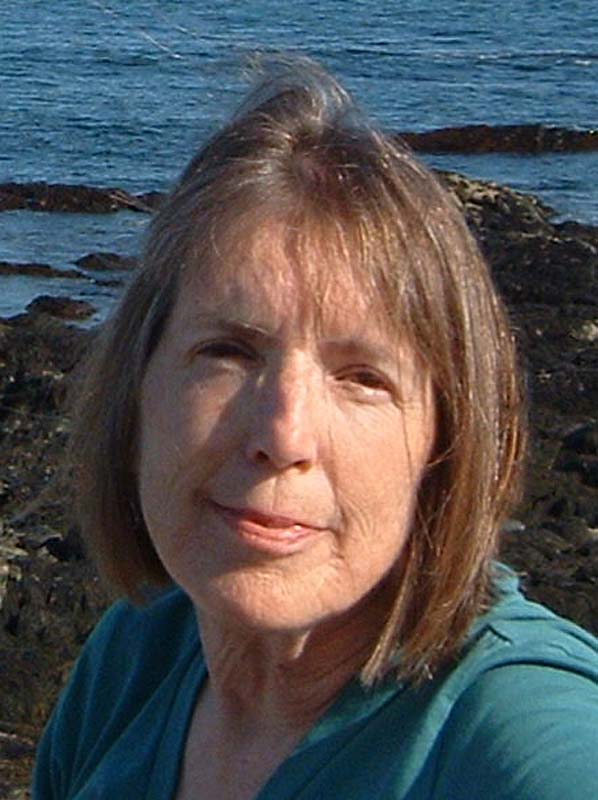Eleanor Morse went to Botswana with her then-husband, a resident of the country, in the 1970s, shortly after graduating from Swarthmore. She worked there for several years.
After living in Botswana, she moved to Maine – first the midcoast, then Portland, then Peaks Island, where she now lives. She worked at various jobs but she also wrote, including the book “An Unexpected Forest,” which in 2008 won the Independent Publishers Gold Medalist Award for Best Regional Fiction in the Northeast U.S., and the Best Published Fiction award from the Maine Writers & Publishers Alliance.
But she did not do a book about Botswana until “White Dog Fell from the Sky,” (Viking, $27.97), which came out in January.
The book has already received favorable mentions from O, the Oprah Magazine; The Christian Science Monitor; Publisher’s Weekly; The New York Journal of Books and Library Journal.
Q: You worked for several years in Botswana in the 1970s. What did you do there?
A: I was head of the national office of the division radio education, doing adult education. It was a tri-country program, although Botswana later broke off, with Lesotho and Swaziland.
It was part of a Swedish-run national education campaign. When I first went to Botswana, they were looking to liberal, democratic countries to give money to help educate the Africans. And they developed this radio learning group, with a lot of discussions about what it is like to be a developing country.
Botswana was an interesting country. Africa tends to be lumped together by people not from there as a violent and troubled region. But the countries are different, just like the United States is different from Mexico or Uruguay or Canada, with different languages and different cultures.
When I was there, Botswana and South Africa were as different as two countries can be. The president of Botswana was Seretse Khama, and he was Oxford-educated and married to a white woman, and the highest levels of the country were multiracial. It was a very enlightened country – although the average income was $70 a year, but that was helped by the discoveries of copper, nickel and diamonds. The country had no military, although it was surrounded by very powerful countries, and the money went into health care and education.
Q: Why, after more than 30 years, did you decide to write this novel based there?
A: I very rarely write about places where I live or that I have recently experienced. I wrote short fiction 10 years after leaving there, but never tried to get any of it published. I think it took a while to integrate the experiences.
When I lived there, I was a young woman, idealistic, naive and hopeful, and wrote this as an older woman who is more disillusioned. Maybe I had to come to grips with my not being more politically active when I saw such a huge problem in the country next door in South Africa.
And then I thought that if I didn’t write it now, I would never write it, because it is beginning to slip away. None of these characters are people that I knew – I created all of them – but I knew there was a story there that needed to be told.
One thing about South Africa: Although terrible, evil things happened there, it was not a monoculture. There were plenty of whites living there who hated that system.
Q: How is the region now recovering from the wounds inflicted by apartheid?
A: I haven’t been back since the mid-1970s. I did not want to go back until I finished this book, because I did not want what is true now to change the sense of what happened in the 1970s. I do want to go back now, but I am not an expert, although I have kept in touch through the news and people I know there. It is very fortunate that Mandela and de Klerk happened to be figures there at the same time.
When I lived there, we had discussions, and no one foresaw change without the most hellishly awful bloodshed. There has been bloodshed, but not the awful bloodshed that we thought there would be.
And AIDS has been an awful problem, and there certainly has been a difference in the way the countries responded. There was quite a long period of denial in South Africa, while Botswana had some early and effective programs that helped slow the spread of the disease. Still, one of four adults in South Africa since 2006 have had AIDS.
Q: White Dog seems to create a cohesiveness in the book, a being that links Isaac and Alice when they are on their separate travels. I think there is some symbolism there, but I can’t put words to it. Can you explain?
A: I did not mean White Dog to be anything other than what she is. But like many dogs, she is loyal and beyond what any human can be, and will stand for anything. She is based on a dog I met in India named Blondie, and I fell in love with her. She had a master who was busy with his own life and got a lot more from Blondie than he gave, but he was her person, and she always remained hopeful and positive.
I didn’t set out to make her a symbol, but she did have her own personality, and maybe she became one.
Q: In this book I see a little bit historical/period novel, a little bit adventure, a little bit romance. Can you put a genre on it?
A: I couldn’t label it. It comes under the umbrella of literary fiction. I just wanted to write a book that mattered. I wanted to capture a period of history that was a difficult period, and to have characters who had lives that mattered to people.
Q: How did you end up in Maine?
A: I met the person who became my husband when I was at Swarthmore and he was in Philadelphia. He was from Botswana, and we went to Botswana and worked there for four years. He was the social minister in the Department of Agriculture.
He went to Bowdoin, and when we came back to the States we did not want to live in the city, so a friend of his from Bowdoin put us up for a while in Bowdoinham. We worked at an adult learning center in Orland, and then came to Portland, where I worked in training and organizational development for 10 years at Maine Medical Center before going out on my own in business.
Q: Do you have anything in the works now?
A: I’ve got a lot of ideas, but I’m not actively working on anything. I can’t do all this, of getting this book out, at the same time I am writing. But when the hoopla fades, I will write something else.
Tom Atwell is a freelance writer living in Cape Elizabeth. He can be contacted at 767-2297 or at:
tomatwell@me.com
Send questions/comments to the editors.




Success. Please wait for the page to reload. If the page does not reload within 5 seconds, please refresh the page.
Enter your email and password to access comments.
Hi, to comment on stories you must . This profile is in addition to your subscription and website login.
Already have a commenting profile? .
Invalid username/password.
Please check your email to confirm and complete your registration.
Only subscribers are eligible to post comments. Please subscribe or login first for digital access. Here’s why.
Use the form below to reset your password. When you've submitted your account email, we will send an email with a reset code.